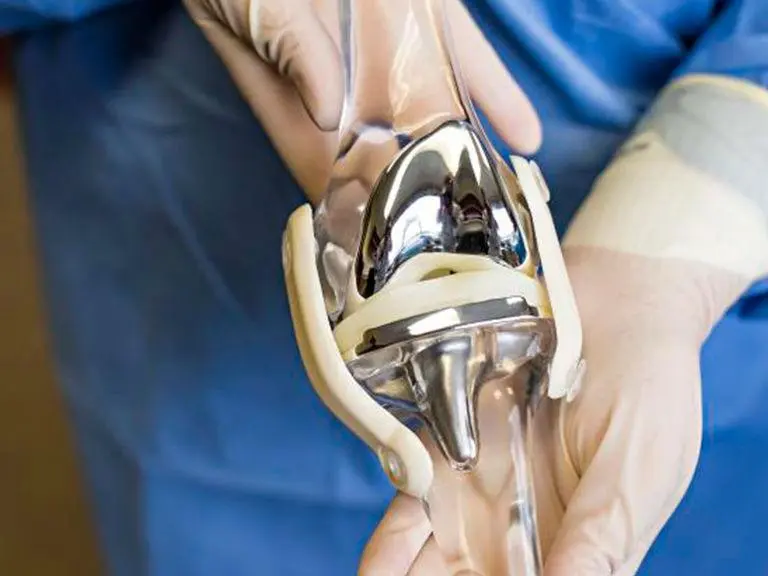Knee replacement surgery, while often a highly effective treatment for severe knee arthritis and other knee conditions, does come with potential risks and complications that patients should be aware of. These risks can vary depending on individual health factors and the specific type of surgery performed.
Here are some of the potential risks and complications associated with knee replacement surgery:
1. Infection: Infection is a serious complication that can occur after any surgery. Despite precautions such as antibiotics and sterile operating environments, infections can still occur in the knee joint or surrounding tissues. Symptoms include increased pain, swelling, warmth, redness, and fever.
2. Blood clots: Deep vein thrombosis (DVT) and pulmonary embolism (PE) are potential complications due to reduced mobility after surgery. Blood clots can form in the legs and travel to the lungs, which can be life-threatening. Measures such as blood thinners and early mobilization are used to reduce this risk.
3. Implant problems: While rare, issues with the knee implant itself can occur, such as loosening, dislocation, or wear and tear over time. This may require revision surgery to correct.
4. Joint stiffness: Some patients may experience stiffness in the knee joint, making it difficult to bend or straighten the knee fully. Physical therapy is often recommended to improve range of motion.
5. Nerve or blood vessel damage: During surgery, there is a small risk of damaging nerves or blood vessels around the knee. This can lead to numbness, tingling, or, in rare cases, more serious complications.
6. Persistent pain: Although knee replacement surgery aims to alleviate pain, some patients may still experience persistent discomfort. This could be due to nerve damage, improper implant alignment, or other factors.
7. Allergic reactions: While uncommon, some patients may have allergic reactions to materials used in the knee implant, such as metals or polymers.
8. Bone fracture: During surgery or in the post-operative period, the bone around the knee may fracture. This may require additional treatment or surgery.
9. Heterotopic ossification: In some cases, bone may form in soft tissues around the knee joint, causing pain and stiffness.
10. Long recovery period: Recovery from knee replacement surgery can be lengthy and challenging, requiring a commitment to physical therapy and rehabilitation to regain strength and mobility.
11. Other complications: Other potential complications include problems with wound healing, persistent swelling, and general risks associated with anesthesia.
It’s important for patients considering knee replacement surgery to discuss these risks and complications with their orthopedic surgeon. They can provide personalized guidance based on the patient’s health status and the specific type of surgery planned. Despite the risks, for many patients, knee replacement surgery offers significant relief from pain and improvement in quality of life.






Comments